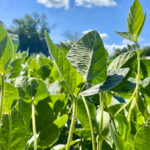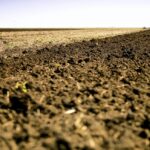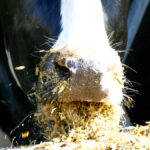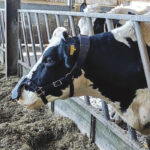Beijing | Reuters – Chinese researchers say they have found a way to produce an animal feed protein from carbon monoxide in what is being hailed as a breakthrough that […] Read more
Tag Archives greenhouse gases

China to make protein for livestock from carbon monoxide

McDonald’s targets net greenhouse gas emissions drop
Reuters – McDonald’s Corp set a new target to cut global greenhouse gas emissions to net zero by 2050, from the beef in its burgers to the light bulbs in […] Read more

International campaign calls for end to food animal use
Plant Based Treaty initiative asks national governments to transition away from food animal production
Glacier FarmMedia – Environmental and animal rights activists have launched an international campaign to halt what they see as the harmful impact of meat, dairy and egg farming on the […] Read more

Opinion: Farmers need backing from agriculture ministry
Credit needs to be given for the role farmers have played in sequestering carbon
The government of Canada has endorsed an ambitious agenda to reduce greenhouse gas emissions. This agenda has resulted in setting targets that will be hard to meet unless significant changes […] Read more

Opinion: Energy agency report has consequences for agricultural producers
The International Energy Agency’s (IEA) widely publicized report on reducing greenhouse gas emissions to achieve global targets further bolsters the case that more needs to be done in agriculture to […] Read more

Reducing methane can benefit livestock
A combination of strategies is focus of new research
Reducing methane emissions from cattle likely depends on more than one strategy, a researcher told the Animal Nutrition Conference of Canada. Dr. Cecile Martin from the Université Clermont Auvergne in […] Read more

N-inhibitors aid in greenhouse gas reduction
Weather and field conditions impact year-to-year effectiveness
Research from the University of Guelph indicates the application of nitrogen inhibitors can help farmers significantly reduce their emissions. While such products can differ in consistency across various growing conditions, […] Read more

Why profitable farms can produce less carbon
Livestock efficiency gains result in more production from fewer animals, which produce less carbon along the way
Increasing production efficiency and profitability are two of many ways the livestock industry can help mitigate climate change, according to a University of Guelph expert on the topic. Dr. Claudia […] Read more

European innovations aim to capture waste from cows
There’s a lot of research on feed additives to reduce methane output, but collection devices are starting to show up
European inventors are coming up with what might seem outlandish ways to manage emissions from cattle — collecting the emissions and excretions from both ends. In late 2020, the United […] Read more
Group calls for farm climate investment from federal government
A group of farmers is calling for the federal government to invest $300 million to reduce greenhouse gas emissions on farms. Farmers for Climate Solutions (FCS) says such an investment […] Read more

